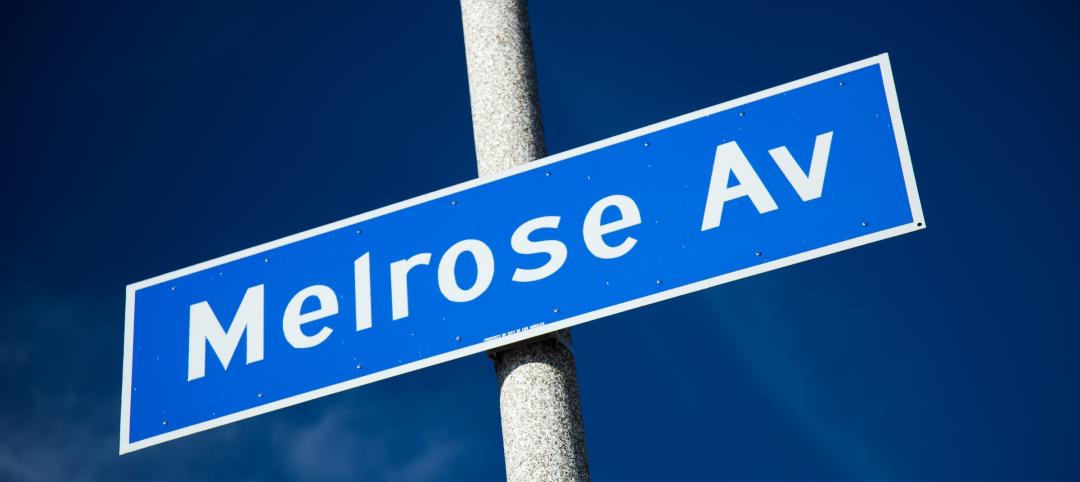VÉLIZY-VILLACOUBLAY, France – May 12, 2011 - Dassault Systèmes, a world leader in 3D and Product Lifecycle Management (PLM) solutions, and Gehry Technologies (GT), a technology and services provider to leading owners, developers, architects, engineers, general contractors, fabricators, and other building industry professionals worldwide, announced today that Gehry Technologies’ Digital Project products will be integrated into the Dassault Systèmes’ portfolio and distributed through Dassault Systèmes’ direct and indirect sales channels.
Digital Project is a suite of powerful 3D building information modeling (BIM) applications created by Gehry Technologies using Dassault Systèmes’ CATIA as a core modeling engine. Digital Project features design, engineering and project management in a comprehensive 3D environment specifically tailored to the architecture, engineering and construction industry. Since its inception in 2004 Digital Project has been used for some of the world’s emblematic structures, from commercial and institutional building projects to large scale infrastructure works. GT has successfully used Digital Project to address challenging design and project management issues on such landmark projects as the World Trade Center site, Beijing National Olympic Stadium, the Lincoln Center redevelopment, and the Burj Kalifa Tower, the world’s tallest building, to name a few.
This agreement allows for broader distribution of GT’s Digital Project and leads the way for Dassault Systèmes’ longer term diversification strategy to address this market while providing an opportunity for Gehry Technologies to focus on its new project delivery and Web service offerings. Leveraging advanced integrated digital design technologies, unique collaboration capabilities, deep knowledge of the industry, and dedicated services will enable construction customers to run multi-discipline parametric modeling regardless of the building project scale and complexity while allowing BIM implementations across the entire project team, including architects, structural engineers, MEP engineers, contractors and fabricators.
“Dassault Systèmes PLM solutions have been successfully deployed in manufacturing industries and we strongly believe that they can bring significant value in addressing the needs of construction companies, as demonstrated by leading construction customer projects in recent years,” said Etienne Droit, CEO, CATIA, Dassault Systèmes. “Digital Project has already proven its unique capacity to make the most complex projects in the world successful and we are thrilled to take this long-lasting partnership one step further by bringing advanced solutions specifically developed for the construction sector to our customers.”
“GT’s mission is to help architecture realize its highest ambitions: meeting the needs of clients and communities through aspiration designs that are delivered on time and on budget,” added Dennis Shelden, CTO, Gehry Technologies. “Digital Project, based on Dassault Systèmes’ CATIA, gives designers power of control, design, budget, and scheduling… We think that this agreement will accelerate the adoption of Digital Project within the construction world, enabling more innovative buildings and structures.”
About Gehry Technologies
Gehry Technologies (GT) provides design and project management technology and consulting services to leading owners, developers, architects, engineers, general contractors, fabricators, and other building industry professionals worldwide. GT solutions increase creativity and control; reduce project risks, costs, and completion times; and improve processes and decisions through collaboration, project visibility, and information access. Gehry Technologies is privately held, with offices in Los Angeles, New York, Paris, Mexico City, Abu Dhabi, Hong Kong, Shanghai, and Beijing.
About Dassault Systèmes
As a world leader in 3D and Product Lifecycle Management (PLM) solutions, Dassault Systèmes brings value to more than 130,000 customers in 80 countries. A pioneer in the 3D software market since 1981, Dassault Systèmes applications provide a 3D vision of the entire lifecycle of products from conception to maintenance to recycling. The Dassault Systèmes portfolio consists of CATIA for designing the virtual product - DELMIA for virtual production - SIMULIA for virtual testing - ENOVIA for global collaborative lifecycle management, EXALEAD for search-based applications- SolidWorks for 3D mechanical design and 3DVIA for online 3D lifelike experiences.
Related Stories
Cultural Facilities | Aug 21, 2024
Baltimore’s National Aquarium opens 10,000-sf floating wetland that mimics the harbor’s original tidal marsh habitat
The National Aquarium in Baltimore has opened the National Aquarium Harbor Wetland, a 10,000-sf floating wetland that mimics the Inner Harbor’s original Chesapeake Bay tidal marsh habitat. Located between Piers 3 and 4 on Baltimore’s Inner Harbor, the $14 million project features more than 32,000 native shrubs and marsh grasses.
Mixed-Use | Aug 21, 2024
Adaptive reuse of a Sears store becomes luxury mixed-use housing
6 Corners Lofts at 4714 W Irving Park Road, Chicago, Ill., opened in March of 2024 as a 394,000-sf adaptive reuse project born out of a former Sears store.
Building Materials | Aug 19, 2024
Federal 'buy clean' construction materials label program unveiled
The U.S. Environmental Protection Agency announced a plan for implementing a new label program to boost American production of more climate-friendly construction materials and products. The label program will prioritize steel, glass, asphalt and concrete.
Museums | Aug 19, 2024
The Tampa Museum of Art will soon undergo a $110 million expansion
In Tampa, Fla., the Tampa Museum of Art will soon undergo a 77,904-sf Centennial Expansion project. The museum plans to reach its $110 million fundraising goal by late 2024 or early 2025 and then break ground. Designed by Weiss/Manfredi, and with construction manager The Beck Group, the expansion will redefine the museum’s surrounding site.
AEC Tech | Aug 19, 2024
Harnessing AI to revolutionize architectural design and creativity
Architects are wondering if AI will replace us. For Vessel, the gains offset the fear. We believe there is wisdom in the unattributed quote, “You won’t lose your job to AI. You will lose your job to someone using AI.”
Reconstruction & Renovation | Aug 19, 2024
Movement to protect historic buildings raises sharp criticism
While the movement to preserve historic buildings has widespread support, it also has some sharp critics with well-funded opposition groups springing up in recent years. Some opponents are linked to the Stand Together Foundation, founded and bankrolled by the Koch family’s conservative philanthropic organization, according to a column in Governing magazine.
Government Buildings | Aug 19, 2024
GSA posts new RFI for enabling energy efficiency, decarbonization in commercial buildings
The U.S. General Services Administration (GSA), in collaboration with the U.S. Department of Energy, recently released a new Request For Information (RFI) focused on enabling energy efficiency and decarbonization in commercial buildings. GSA wants to test innovative technologies through GSA’s Center for Emerging Building Technologies.
MFPRO+ New Projects | Aug 16, 2024
At 60 stories, the Paramount multifamily development will stand as Nashville’s tallest high rise
When complete, the 60-story Paramount building, at 750 feet high, will be the tallest high rise tower in Nashville, Tenn., surpassing the city’s current record holder, the 617-foot AT&T Building. The $390 million Paramount project recently launched condo sales after securing more than $230 million in construction financing.
Urban Planning | Aug 15, 2024
New York City begins first large-scale porous pavement installation
New York City is installing its first large-scale porous pavement installation along seven miles of roadway in Brooklyn. The project will keep 35 million gallons of stormwater out of the combined sewer system each year, according to a news release.
Urban Planning | Aug 15, 2024
The magic of L.A.’s Melrose Mile
Great streets are generally not initially curated or willed into being. Rather, they emerge organically from unintentional synergies of commercial, business, cultural and economic drivers. L.A.’s Melrose Avenue is a prime example.
















